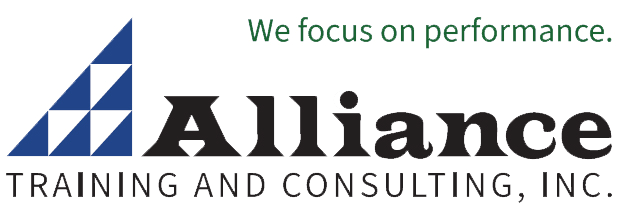Budgeting Best Practices for Tough Economic Times
By: Dale Mask
Poor budgeting can be disastrous.
Because businesses face growing demands to control costs, managers at all levels need better budgeting skills. However, most managers have not been trained on how to prepare a business budget. The fast pace of economic change, the potential for cutbacks and the complexities of the marketplace make developing effective budgets both more difficult and more important than ever before.
Poor department budgeting spread across an organization can be disastrous. In a boom, there is enough fat to absorb some bad judgment; in today’s economy, good budget management becomes a survival issue. Important benefits of improving the budgeting process include:
- Better company wide understanding of strategic goals
- More coordinated support for company goals
- More realistic budgets
- Improved ability to respond quickly to competition and market changes
Implementing budgeting best practices is essential to meeting the strategic goals and objectives of the organization. The following are key budget issues and best practices for every organization:
Budget issue: Budget development should be linked to corporate strategy.
The budget expresses how resources will be allocated and how progress will be measured. When the budget is linked to corporate strategy, all managers and employees have a clearer understanding of strategic goals. This leads to greater support for goals, better coordination of efforts, and, ultimately, to stronger companywide performance.
Best budgeting practice: Make certain strategic goals are set before budgeting begins. This not only makes it easier for budget developers at all levels, fewer budget revisions are required. Budget development then becomes not only faster and less costly, but also far less frustrating.
Budget issue: Develop procedures to allocate resources strategically.
Competition for resources is inevitable. Every business unit needs funding for both capital and operating expenses. Because needs typically exceed actual resources available, resources must be allocated to support key strategies.
Best budgeting practice: While it is often said that resource allocation is part science, part art, applying best practices can lead to better results. One such practice is to give managers insight into the ways in which changes in one budget effect the other. It is also important to develop measures such as the company's weighted average cost of capital and the degree of risk involved in competing plans of action, the costs or advantages associated with deferring action, as well as factors such as expected developments in interest rates. By monitoring the results of allocation efforts, companies can refine and improve their procedures.
Budget issue: Avoid incentives strictly tied to meeting budget targets.
While it seems logical to evaluate managers primarily on how closely they hit budget targets, this can tempt managers to "win" by playing games with budget targets. Such game playing is not always in the company's best interest or ethical standards.
Best budgeting practice: Make meeting budget targets secondary to other performance measures. Business unit managers should be involved in identifying the measures that are most relevant for their operations. While some measures may be financial, other appropriate non-financial measures could include product defect rate, customer satisfaction ratings and others.
Budget issue: Tie cost management efforts to budgeting.
Tying cost management efforts to budgeting improves the quality of information available for managers when developing their budgets.
Best budgeting practice: Standardizing the cost management system companywide is an important step in improving the link between cost management and budgeting. Using variance analysis (studying the differences between budgeted and actual costs, or the study of costs at one company compared with industry averages, will improve the overall budget process.
Budget issue: Understanding the budget process.
Strive to reduce budget complexity and streamline budgeting procedures by making certain all people with budget responsibilities understand the budget process. This allows management to collect budget information, make allocation decisions, and communicate final targets in less time, at lower cost, and with less disruption to the company's core activities.
Best budgeting practice: Leading companies make sure that budget developers and their assistants are thoroughly trained on the process. This budget training for managers, together with ongoing monitoring of information needs companywide, helps companies deliver the right information to managers.
Budget issue: Ensure budgets accommodate change.
Budgets that accommodate change help companies respond to competitive threats or opportunities more quickly and with greater precision. Plus, knowing that budgets have some flexibility frees budget developers from the need to "pad" budgets to cover a wide variety of possibilities. This leads to leaner, more realistic budgets.
Best budgeting practice: While it is important that budgets not be revised to cover up for poor performance or poor planning, best practice companies choose to revise budgets rather than adhere to budgets that do not reflect current conditions.
In general, the essential characteristics of a sound budgeting process include:
- Short and long-term perspective
- Linkage to broad organizational goals
- Budget decisions based on results and outcomes
- Effective communication with internal and external stakeholders; and
- Appropriate incentives for management and employees
Review the best practices for budgeting listed here and compare them to the practices used in your organization. Applying best practices to a sound budgeting process cannot occur without training managers in areas such as Budgeting for Managers and Finance for Non Financial Managers or other finance and accounting courses.
© 2015 Alliance Training and Consulting, Inc.
View our Finance and Accounting Courses
